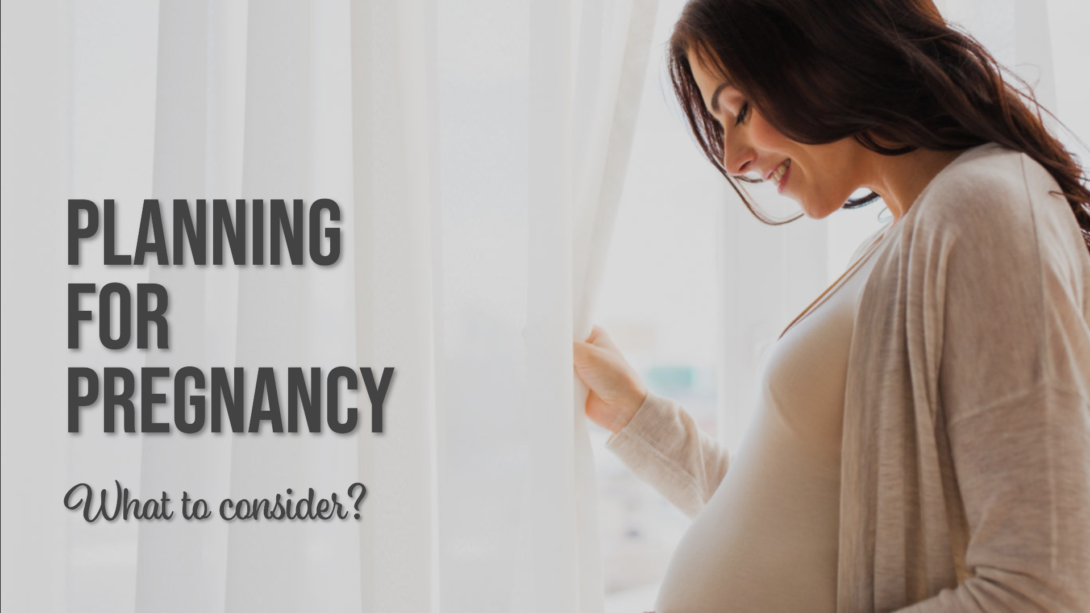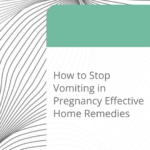Even before the first pregnancy test results in a positive result, preparing to become a parent is a major undertaking. It might be daunting to think about all the things that you need to consider when attempting to conceive, from lifestyle adjustments to the best prenatal vitamin.
We have come up with a comprehensive list of 14 things to think about, from when to stop using birth control to which substances you might want to limit.
14 things to think about if planning for a baby
Even before the baby comes, there are so many things that you need to change in your lifestyle if you are planning to conceive. Let us go through each of these points one by one.
Discuss about parenting with your partner
Experts and real parents agree that it’s crucial to discuss some of the most important parenting decisions with your partner before you begin trying to conceive. These include how you’ll divide up child care responsibilities, how you want to raise your children, whether you want to work or stay at home, and your religious beliefs. Priorities, expectations, and worries should all be discussed by couples during the entire process, but especially before becoming pregnant.

Stop taking birth control pills
Plan to cease hormonal contraception if you’ve been using it before you start trying. You should speak with an OB-GYN or other healthcare professional about when to quit because it varies on the type of birth control you’re on. Your cycle can be different from how it was before you started taking the pill if you’ve been doing so for a time. Additionally, it may take some time for your hormone levels to normalize after stopping the pill, but if your period hasn’t arrived after three months, you should visit a doctor.

Stop smoking or drinking
Before you begin making pregnancy plans, think about cutting back if you regularly consume alcohol, smoke cigarettes, or use recreational drugs. According to estimates, tobacco use may be to blame for up to 13% of fertility issues, and there is no safe level of smoking or exposure to smoke. According to research, even those who are exposed to secondhand smoke have more difficulty in conceiving than those who aren’t.
Start taking prenatal supplement
Every day multivitamin containing 400 micrograms of folic acid should be taken by anyone who plans to become pregnant in the next three to six months. Other essential nutrients for a healthy pregnancy are included in the multivitamin itself, including calcium for strong teeth and bones and iron to combat anemia. After you brush your teeth in the morning, take the pill, or keep a jar at work and set a reminder.
Getting proper sleep
While most of us expect restless nights once the baby is born, it can also be difficult to obtain a good night’s sleep while pregnant because certain conditions, including as indigestion, the need to get up to use the restroom, and getting used to side sleeping, can keep some expectant individuals up at night. According to studies, getting enough sleep can even hasten the process of becoming pregnant because individuals who don’t get enough sleep struggle more with regular ovulation than those who do.

Keep your stress level in check
High levels of stress can delay pregnancy (by causing irregular ovulation or by impairing an embryo’s capacity to implant in the uterus), however the connection between the two is not proven. Take a moment to assess your mental well-being, determine what makes you feel relaxed the most, and ensure that you are prepared for this new stage of your life.
Think about your living situation
Do you need to relocate for any other purpose, or just to have more room or a better location? If so, our suggestion is to act quickly. You may feel better prepared for pregnancy if you feel settled and positive about your home—ideally, somewhere you want to live for at least a few years. If at all possible, avoid dealing with packing, movers, renovations, lawyers, landlords, or closings once you are expecting.
Take help from your family members
If you can, inquire about your mother’s, sisters’, aunts’, and grandmothers’ pregnancies. Did they have trouble becoming pregnant? Were there any issues, like breech presentation or preterm labor? It’s a good idea to review your medical history and discuss any pertinent information with your doctor because some health disorders have a tendency to run in families. Numerous typical issues with female infertility, such as age-related poor egg quality or clogged or damaged fallopian tubes, are not inherited. However, some conditions, such as blood clotting abnormalities, ovarian cysts, and fibroids, can run in families.
Do not forget to visit the dentist
Even while it may not seem to have anything to do with fertility, getting your teeth and gums examined before becoming pregnant is another smart choice. According to research, a healthy pregnancy is correlated with dental health; women with untreated gum disease are more likely to experience preeclampsia, early birth, and low birth weight babies. Examining your teeth now allows you time to reduce gum inflammation (gingivitis) and receive any necessary x-rays, which should be avoided during pregnancy.
Your dentist might advise scheduling cleaning appointments every few months if your oral health could use some improvement.

Try avoiding chemicals
Consider how you want to manage your color during pregnancy if you’ve been coloring your hair. It is advised that while you are pregnant, you shouldn’t get touch-ups every few weeks. Although there isn’t definitive evidence that hair dyeing is dangerous during pregnancy, the majority of doctors advise attempting to reduce your exposure to the chemicals, particularly in the first trimester when your baby’s major organs are developing. Consult your doctor if you are worried.
In conclusion, pregnancy preparation calls for meticulous thought and planning. Every step is crucial, from having honest discussions with your partner about your parenting principles and duties to making the required lifestyle changes. You can increase your chances of having a safe and successful pregnancy by following these instructions as you start your exciting path to motherhood.
Share this post: on Twitter on Facebook on Google+

